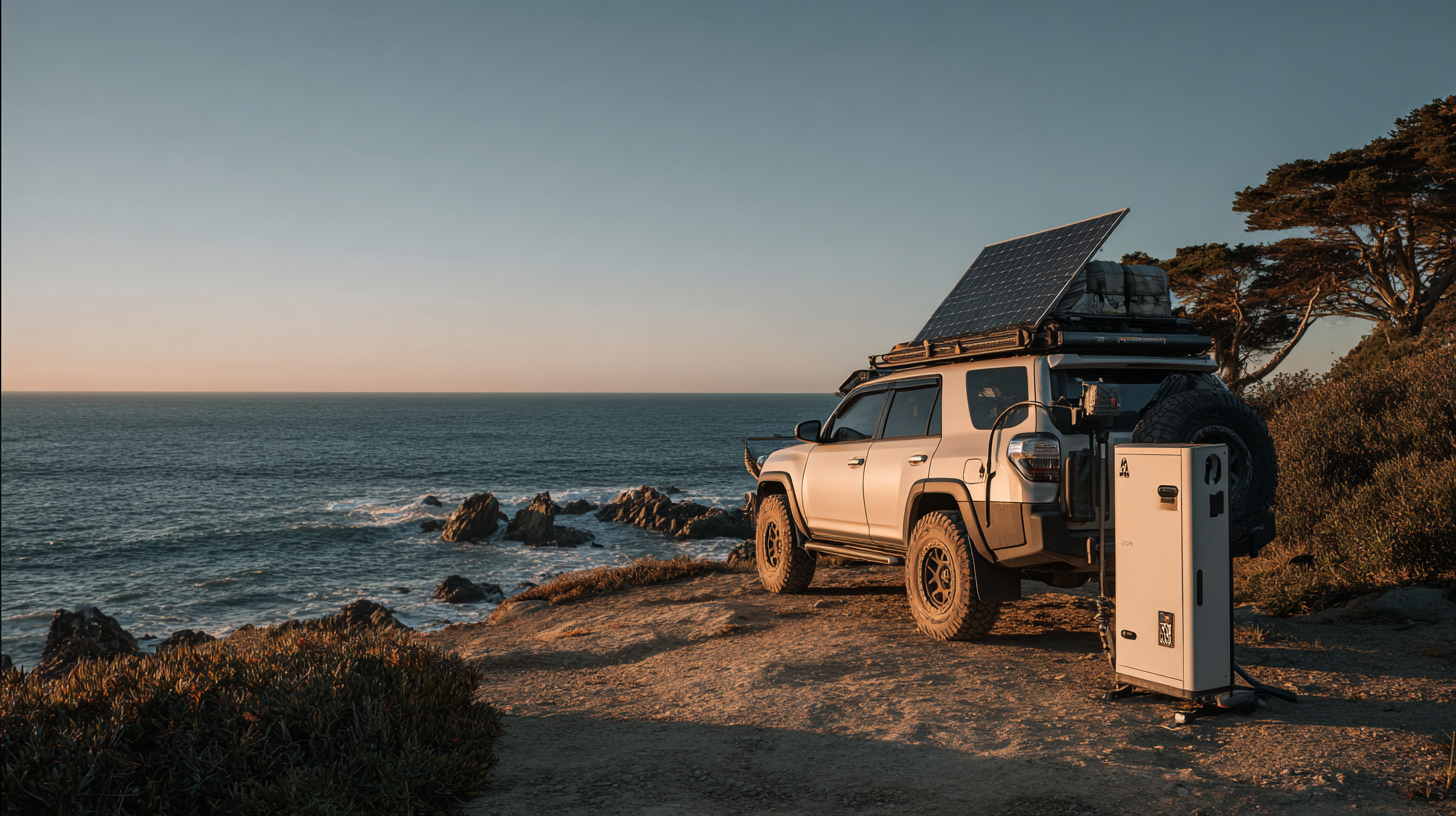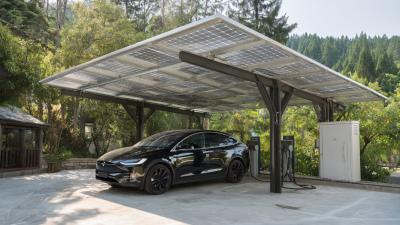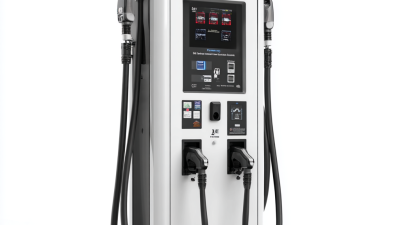As the global shift towards sustainable travel gains momentum, the demand for renewable energy solutions, particularly in electric vehicle (EV) charging, is expanding. With over 1.4 million EVs sold in the United States alone in 2021, and this number anticipated to grow significantly, choosing the right Off Grid Solar EV Charger becomes crucial for eco-conscious travelers.
According to a report by the International Renewable Energy Agency (IRENA), solar energy is set to become the dominant renewable power source by 2030, making solar chargers an optimal choice for off-grid adventures. Not only do they provide a reliable power source without reliance on traditional grids, but they also align perfectly with the principles of sustainable travel.

In this blog, we will explore essential tips on selecting the right Off Grid Solar EV Charger to meet your travel needs, ensuring an efficient and environmentally friendly journey.
Understanding Off Grid Solar EV Chargers and Their Benefits for Eco-Friendly Travel
Off grid solar EV chargers represent a groundbreaking solution for environmentally conscious travelers seeking to minimize their carbon footprint. By harnessing the power of the sun, these chargers allow electric vehicle owners to recharge their cars without relying on traditional, grid-based electricity sources. This independence not only reduces dependence on fossil fuels but also promotes a sustainable lifestyle, making it easier to explore remote and off-the-beaten-path locations without the environmental impact associated with conventional charging methods.

When planning for sustainable travel with an electric vehicle (EV), a critical step is assessing your energy needs, particularly in the context of off-grid solar EV chargers. Understanding your charging requirements begins with evaluating the total energy consumption of your EV. According to the U.S. Department of Energy, the average electric vehicle consumes about 30 kilowatt-hours (kWh) per 100 miles. If you anticipate traveling 200 miles, you will need roughly 60 kWh of energy.
Next, consider the solar charger’s capacity and your available sunlight. Various reports indicate that a well-placed solar panel can generate between 10 to 30 kWh per day, depending on location and weather conditions. For instance, areas with abundant sunlight, such as the southwestern U.S., can yield much higher daily output, potentially meeting or exceeding your EV's energy requirements. Therefore, it's essential to match the solar charger’s output with your calculated needs to ensure you have sufficient power for sustainable travel without relying on fossil fuels. Carefully analyzing these elements will empower you to make informed decisions and optimize your travel experience.
| Charging Requirement (kWh) | Daily Solar Production (kWh) | Battery Capacity (kWh) | Recommended Charger Power (W) | Charging Time (Hours) |
|---|---|---|---|---|
| 10 | 15 | 30 | 200 | 5 |
| 15 | 20 | 40 | 300 | 5 |
| 20 | 25 | 50 | 400 | 5 |
| 25 | 30 | 60 | 500 | 5 |
| 30 | 35 | 80 | 600 | 5 |
When choosing an off-grid solar EV charger, two critical features to consider are efficiency and portability. Efficiency pertains to how effectively the charger converts sunlight into usable energy for your electric vehicle. Look for panels with a high conversion rate — ideally above 20% — to ensure that you can maximize the energy gathered during your travels. Furthermore, consider the total wattage output; higher output means faster charging times, which is particularly important during long trips.

Portability is another essential aspect, especially for those who are constantly on the move. Opt for lightweight, compact chargers that can easily fit into your travel gear. Foldable solar panels are a great choice as they can be stored conveniently and set up quickly at any stop.
Tip: Always check the durability ratings of the solar charger; a weather-resistant design will ensure it can withstand various environmental conditions. Additionally, consider accessories like portable batteries to store excess energy for nighttime charging, enhancing your off-grid experience.
When considering the long-term savings of solar versus traditional charging solutions for electric vehicles (EVs), the numbers speak volumes. According to a report from the International Renewable Energy Agency (IRENA), the cost of solar energy has decreased by nearly 90% since 2010. This drastic reduction makes solar charging not only a sustainable option but also an economically advantageous one. For instance, while traditional charging can cost approximately $0.14 per kWh on average, solar power brings that cost close to $0.00 after the initial solar panel investment is recouped.
Tip: To maximize the financial benefits, evaluate your travel patterns and choose a solar EV charger with a capacity that matches your typical energy needs. Larger, more powerful systems may seem appealing, but they also come with higher upfront costs.
In addition to lower operational costs, solar charging setups promote energy independence. According to the U.S. Department of Energy, EV owners can save between $5,000 and $10,000 over the life of their vehicles by transitioning to solar, factoring in reduced reliance on grid electricity and the volatility of traditional fuel prices.
Tip: Explore local incentives and rebates for solar installations, which can significantly offset initial costs and improve your overall return on investment.
When setting up your off-grid solar EV charger, a meticulous approach to installation and maintenance is crucial for optimal performance. First, you should assess your charging needs based on your travel habits and the energy consumption of your electric vehicle. Choose a solar panel system that matches or exceeds your energy requirements to ensure that you can recharge effectively while enjoying your sustainable journey. Position the panels in an area with maximum sunlight exposure, ideally tilted towards the sun, to harness the most energy throughout the day.
Once installed, regular maintenance of your solar charger will ensure its longevity and efficiency. Begin by keeping the solar panels clean and free from debris, as dirt and dust can significantly reduce energy absorption. Inspect all wiring and connections periodically for signs of wear or corrosion, which can impact performance. Additionally, consider investing in monitoring systems that can provide real-time data on energy generation and battery status, allowing you to address any potential issues before they escalate. By focusing on these installation and maintenance tips, you’ll create a reliable and efficient solar charging setup that enhances your off-grid travel experience.






